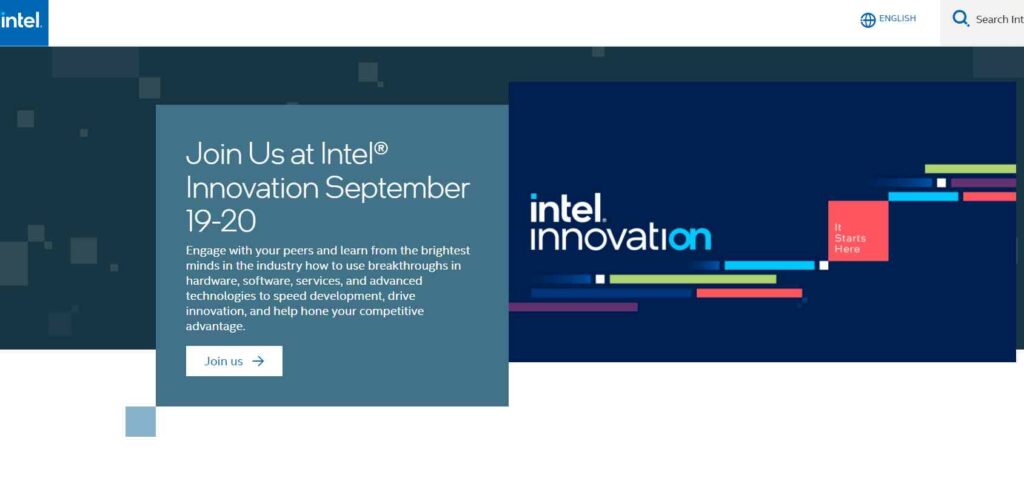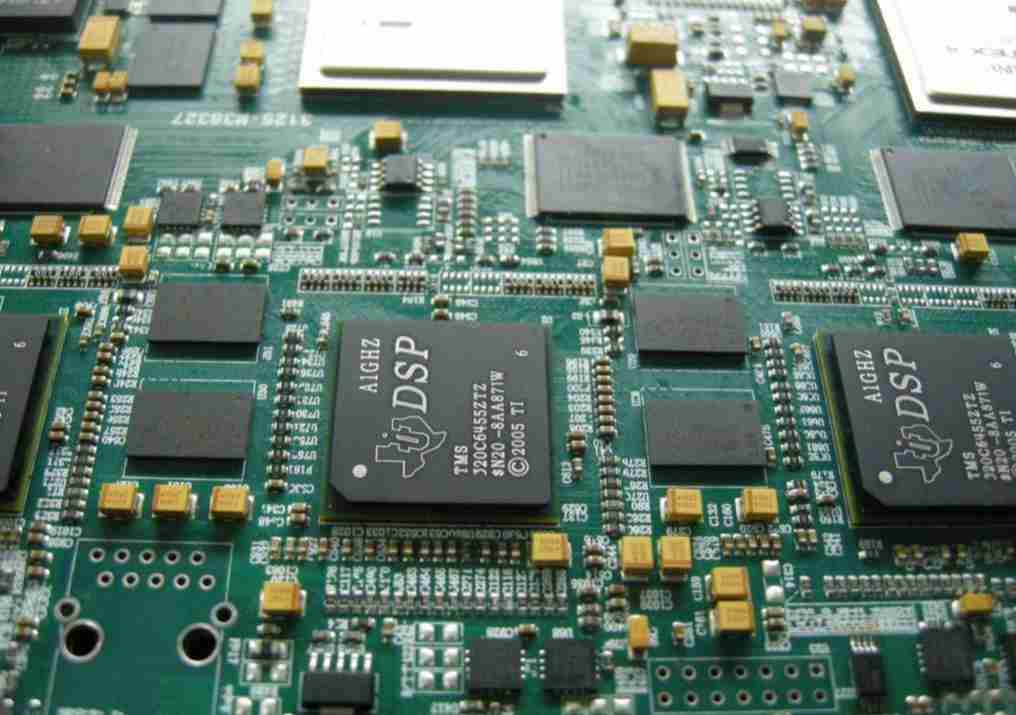Introduction
The electronics industry has grown exponentially in recent decades with advancements in technology and electronics becoming an integral part of our daily lives. From smartphones to laptops, from home appliances to wearable tech, electronics companies continue to innovate and bring new products to market.
The electronics industry is estimated to be worth over $2 trillion globally. Some of the largest companies in the world operate in the electronics sector including giants like Samsung, Apple, HP, and Sony. While the US, Japan, China, South Korea and Taiwan are major hubs, emerging markets like India and Southeast Asia are also becoming important regions.
This article looks at the top 30 electronics companies in the world, based on their revenue, global reach, brand value and market share in consumer and enterprise segments. The companies have been split into three sections – consumer electronics, enterprise technology and semiconductor companies.
Top 10 Consumer Electronics Companies
1. Samsung Electronics

Revenue: $197.7 billion (2020)
Headquarters: Suwon, South Korea
Samsung Electronics is the world’s largest consumer electronics company by revenue and a major player in smartphones, TVs, home appliances, memory chips and display panels. The company’s best-selling products include its Galaxy flagship smartphones, QLED TVs and digital appliances. Samsung has a strong global footprint with operations in over 80 countries.
2. Apple
Revenue: $274.5 billion (2020)
Headquarters: Cupertino, California, USA
Apple is one of the most valuable brands in the world and a leading technology innovator. Apple revolutionized the smartphone industry with the iPhone and also found massive success with products like the iPad, iPod, AirPods, Apple Watch and Mac computers. It operates over 500 retail stores globally and has an active installed base of over 1.5 billion devices.
3. Sony
Revenue: $77 billion (2020)
Headquarters: Tokyo, Japan
Sony produces popular consumer electronics including gaming consoles, digital cameras, TVs, headphones and smartphones like the Xperia. Other major divisions include Sony Pictures for film/TV and Sony Music for music production. Sony aims to generate over 50% of sales from gaming, imaging and sensing solutions by 2025.
4. LG Electronics
Revenue: $48.2 billion (2020)
Headquarters: Seoul, South Korea
LG Electronics is a large conglomerate that manufactures a wide range of products from television sets, home appliances, vehicle components to mobile devices. LG is consistently one of the world’s top 10 consumer electronics companies by revenue. It has over 75 subsidiaries worldwide and is expanding heavily into the electric vehicle (EV) market.
5. Xiaomi

Revenue: $37.2 billion (2020)
Headquarters: Beijing, China
Xiaomi is a popular Chinese electronics company founded in 2010 that makes smartphones, laptops, TVs and smart home devices. It has quickly grown to become one of the world’s largest smartphone makers powered by a strategy of selling feature-packed products at relatively affordable prices. Xiaomi has a strong presence across Asia and is expanding in Europe.
6. Huawei
Revenue: $136.7 billion (2020)
Headquarters: Shenzhen, China
Huawei is a multinational technology company focused on manufacturing telecommunications equipment, consumer electronics and networking equipment. It overtook Apple in 2018 to become the world’s second largest smartphone vendor behind Samsung. Huawei also offers cloud services, artificial intelligence and infrastructure solutions worldwide.
7. Panasonic
Revenue: $55.9 billion (2020)
Headquarters: Osaka, Japan
Panasonic manufactures a wide range of consumer electronics from home appliances, personal care products to cameras, bicycles and batteries. It provides integrated solutions for homes, transportation, entertainment and B2B clients across the world. Panasonic’s major geographic regions include Japan, USA, Europe and China.
8. Lenovo

Revenue: $50.7 billion (2020)
Headquarters: Beijing, China
Lenovo is a Chinese electronics company and one of the largest PC vendors in the world. It acquired IBM’s personal computer business in 2005 and Motorola Mobility in 2014. Lenovo manufactures computers, tablets, smartphones, smart TVs, laptops, servers, storage devices and other electronics. It has a workforce of over 63,000 employees across 180 markets globally.
9. Nintendo
Revenue: $12.4 billion (2020)
Headquarters: Kyoto, Japan
Nintendo is a Japanese video game and consumer electronics giant. It manufactures industry-leading gaming consoles like the Switch and popular franchises like Mario, Zelda and Pokémon. Nintendo is the world’s largest video game company by revenue and pioneered the home console gaming industry. It also manufactures toys, playing cards and other entertainment products.
10. BBK Electronics
Revenue: $17.9 billion (2020)
Headquarters: Dongguan, China
BBK Electronics owns popular smartphone brands like OPPO, Vivo, OnePlus and Realme. It is a leading Chinese consumer electronics company focused on smart devices, biometrics, the Internet of Things (IoT) and artificial intelligence. BBK Electronics has risen rapidly over the past decade to become a top player in the global smartphone market.
Top 10 Enterprise Technology Companies
1. HP Inc.

Revenue: $56.6 billion (2020)
Headquarters: Palo Alto, California
HP Inc. is a leading PC and printer manufacturer that was formed after the split of Hewlett Packard Enterprise in 2015. It sells laptops, desktops, tablets, monitors, printers and related supplies to consumers, businesses and institutions worldwide. HP remains the top PC vendor globally with a market share of around 20%.
2. Dell Technologies
Revenue: $92.2 billion (2020)
Headquarters: Round Rock, Texas, USA
Dell Technologies provides advanced IT hardware, software and services solutions globally. Key offerings include cloud computing, artificial intelligence, hyperconverged infrastructure, servers, PCs, monitors and peripherals. It also owns computing giants like VMware, Secureworks and Boomi. Dell Technologies has a large enterprise customer base and robust supply chain capabilities.
3. Lenovo
Revenue: $50.7 billion (2020)
Headquarters: Beijing, China
Lenovo is a diversified technology company and a global leader in manufacturing personal computers, tablets, smartphones, servers and electronic storage devices. It has a strong global enterprise business selling ThinkPad laptops, data center infrastructure and services to commercial clients across 180 markets.
4. Cisco Systems
Revenue: $49.8 billion (2020)
Headquarters: San Jose, California, USA
Cisco Systems is a worldwide leader in IT, networking and cybersecurity solutions. Its offerings include networking hardware, telecommunications equipment, IoT, security, collaboration tools and other software-based solutions. Cisco enables global internet connectivity through its routers and switches found in data centers and enterprise networks.
5. Hewlett Packard Enterprise
Revenue: $27.0 billion (2020)
Headquarters: Houston, Texas, USA
Hewlett Packard Enterprise (HPE) provides cloud computing, big data analytics, and enterprise IT infrastructure products and services. It helps enterprise clients build cloud-native applications and ingest data from edge to cloud. HPE has a growing as-a-Service portfolio and key vertical expertise in financial services, manufacturing, telecom and other sectors.
6. Oracle

Revenue: $39.1 billion (2020)
Headquarters: Austin, Texas, USA
Oracle is a major enterprise technology company specializing in cloud engineered systems, database software, enterprise resource planning (ERP) software and other solutions for enterprises. Oracle Cloud supports critical workloads while offering greater security, performance and costs savings compared to on-premises systems.
7. IBM
Revenue: $73.6 billion (2020)
Headquarters: Armonk, New York, USA
IBM is a global technology and innovation company offering advanced enterprise IT solutions. It has leadership in hybrid cloud, data, AI, quantum computing and security. IBM serves clients in over 175 countries and continues to reinvent itself to lead in high-value areas like cloud and cognitive software.
8. Salesforce
Revenue: $21.3 billion (2020)
Headquarters: San Francisco, California, USA
Salesforce is a leading global CRM platform helping businesses manage customer relationships. It offers cloud-based applications for sales, service, marketing, commerce, analytics and IT across industries. Salesforce routinely places among the top enterprise SaaS companies with sales momentum driven by digital transformation.
9. SAP
Revenue: €27.3 billion (2020)
Headquarters: Walldorf, Germany
SAP is a European enterprise application software provider helping businesses improve operations and customer relations. Its software includes ERP, HCM, SCM, CRM, database management and other business applications. SAP serves around 440,000 customers worldwide, predominantly large enterprises looking to transform processes.
10. Fujitsu
Revenue: 3.85 trillion yen (2020)
Headquarters: Tokyo, Japan
Fujitsu provides IT solutions and services with around 140,000 employees globally. Its offerings include consulting services, systems integration, outsourcing, network services, software, hardware and AI solutions tailored to different industries. Fujitsu drives digital innovation for large enterprises and government institutions worldwide.
Top 10 Semiconductor Companies
1. Samsung Electronics
Revenue: $58 billion semiconductor revenue (2020)
Headquarters: Suwon, South Korea
Samsung Electronics is the world leader in memory chips and has a strong position in other semiconductors including image sensors, display drivers and 5G chipsets. It has the largest R&D in the semiconductor industry and is investing heavily to grow its foundry and contract chipmaking services.
2. Intel

Revenue: $77.9 billion (2020)
Headquarters: Santa Clara, California, USA
Intel is the world’s largest semiconductor chip maker by revenue. It is the inventor of the x86 processor architecture and produces microprocessors found in most personal computers. Intel has manufacturing sites in the US, Ireland, Israel and China. It is investing tens of billions in new fabs to regain leadership in manufacturing.
3. Taiwan Semiconductor Manufacturing Co. (TSMC)
Revenue: $45.5 billion (2020)
Headquarters: Hsinchu, Taiwan
TSMC pioneered the dedicated semiconductor foundry model when founded in 1987 and is today the world’s largest semiconductor company by market cap. It manufactures chips for fabless companies like Apple, Qualcomm, Nvidia and AMD. TSMC is leading advanced semiconductor manufacturing tech at the 3nm, 5nm and 7nm nodes.
4. SK Hynix
Revenue: 33.1 trillion won (2020)
Headquarters: Icheon, South Korea
SK Hynix is a memory semiconductor supplier of DRAM and NAND flash solutions. It caters to smartphone, PC, server and data center markets worldwide. SK Hynix memory chips are found in devices like Apple iPhones. It ranks second behind Samsung in the global memory market with a 23% share.
5. Micron Technology

Revenue: $21.4 billion (2020)
Headquarters: Boise, Idaho, USA
Micron manufactures memory and storage chips including DRAM, NAND and flash memory. It is the 3rd largest semiconductor company globally for memory chips. Micron’s memory solutions power leading-edge computing, consumer, networking, automotive, industrial, and mobile products. Customers include Apple, Huawei, Dell, Microsoft and Cisco.
6. NXP Semiconductors
Revenue: $8.6 billion (2020)
Headquarters: Eindhoven, Netherlands
NXP Semiconductors is a major fabless semiconductor supplier focused on automotive, IoT, security and networking solutions. It is an inventor of near field communication (NFC) technology. NXP delivers chips powering over 2 billion secure connected devices globally across application domains.
7. Texas Instruments
Revenue: $14.5 billion (2020)
Headquarters: Dallas, Texas, USA
Texas Instruments is one of the earliest entrants and innovators in the semiconductor industry. It designs and manufactures analog chips and embedded processors for electronics products across industrial and automotive markets. Texas Instruments is the market leader in analog semiconductors, notably operational amplifiers and data converters.
8. Qualcomm
Revenue: $23.5 billion (2020)
Headquarters: San Diego, California, USA
Qualcomm invents breakthrough technologies used in mobile and other wireless products. It is the leader in 5G, chipsets for mobile handsets and owns patents critical to smartphone connectivity. Qualcomm’s chips and IP power industry-leading 5G connectivity in smartphones, automotive and IoT globally.
9. Broadcom
Revenue: $23.9 billion (2020)
Headquarters: San Jose, California, USA
Broadcom is a designer, developer and global supplier of semiconductor and infrastructure software solutions. Its chips are used for data center networking, enterprise storage, broadband access and other applications. Major markets include cloud, telecom, enterprise and industrial. Broadcom also offers cybersecurity, mainframe software and more.
10. Advanced Micro Devices (AMD)
Revenue: $9.8 billion (2020)
Headquarters: Santa Clara, California, USA
AMD creates microprocessors and CPUs for PCs, servers, embedded systems and other electronics devices. It licenses chip designs and graphics technologies like Radeon. AMD is the second largest supplier globally for microprocessors powering computers, servers and consumer devices. It competes directly with Intel and Nvidia in multiple segments.
Regional Breakdown of Major Electronics Companies
The electronics industry has a diverse geographic footprint with major hubs in Asia Pacific, North America and Europe. Here is a breakdown of leading companies by their headquarter regions:
Asia Pacific
Samsung, Sony, Lenovo, Huawei, Xiaomi, Nintendo, TSMC, Acer, Asus, Foxconn, LG, Panasonic, Toshiba, SK Hynix, Canon, Nikon, SAP, Olympus, Kyocera
North America
Apple, HP, Dell, Intel, Qualcomm, Broadcom, AMD, Corning Inc., Texas Instruments, Applied Materials, Analog Devices, Seagate Technology, Western Digital
Europe
SAP, Bosch, Schneider Electric, Infineon Technologies, Ericsson, Nokia, ASML Holding, STMicroelectronics, ABB Ltd., Philips, Siemens, SAP, Dassault Systems, Capgemini, Teleperformance, Adidas
Conclusion
The electronics sector has evolved significantly from the early 20th century and is now an integral pillar of the modern digital economy. While consumer electronics companies cater to retail buyers, enterprise tech firms and semiconductor companies offer vital components and solutions that empower digitization across industries.
Asia Pacific holds a strong electronics manufacturing base while North America leads in cutting-edge IT infrastructure, software and internet-based services. Europe has specialized electronics firms across industrial, automotive, aerospace, healthcare and other segments. As technology continues marching forward, these top electronics companies will compete and collaborate to drive further innovation.
Frequently Asked Questions about Electronics Companies
Q1: Which country has the most electronics companies in the world?
A1: Asia Pacific dominates the electronics industry, with China, Japan, South Korea and Taiwan being major manufacturing hubs. In terms of sheer numbers, China has the most electronics companies followed by Japan, South Korea, Taiwan and the United States.
Q2: What are the largest global electronics companies based on market capitalization?
A2: The most valuable electronics firms by market capitalization are Apple and Microsoft from the US, Taiwan Semiconductor Manufacturing Company (TSMC), Samsung Electronics from South Korea, and ASML Holding from the Netherlands as of 2023.
Q3: Which companies make the most popular consumer electronics products?
A3: The top consumer electronics brands worldwide include Samsung, Sony, Apple, LG, HP, Dell, Lenovo, Xiaomi, Huawei, Oppo, Vivo and Panasonic. They manufacture everything from smartphones to laptops, TVs to smart home devices across price segments.
Q4: Which are the fast-growing electronics startups to watch?
A4: Some fast-growing electronics startups to watch include Raspberry Pi, Samsara, Sila Nanotechnologies, Oculii, Esper, Scale AI, Witricity, Humane, SiMa.ai, NextInput, and Neuralink. They are bringing radical innovation across domains like semiconductors, robotics, IoT sensors, batteries, AI processors and more.
Q5: What are the latest trends shaping the electronics sector?
A5: Major trends shaping electronics include 5G connectivity, AIoT, smart manufacturing and automation, autonomous vehicles, augmented and virtual reality, quantum computing, advanced semiconductor materials like GaN and SiC, renewable energy electronics and more. Sustainability and supply chain resilience are also key focus areas.





